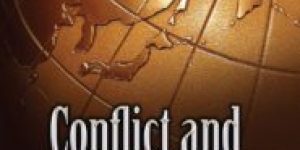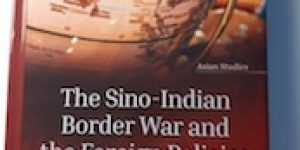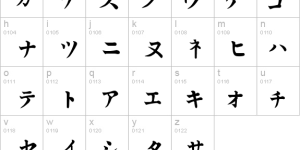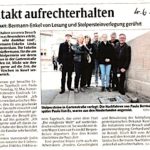Micheál Martin, T.D. – Foreword ~The Irish Asia Strategy and Its China Relations 1999-2009
No comments yet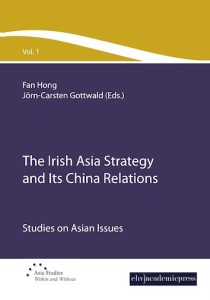 China and Ireland are geographically distant, and very different in terms of size, population and political structures, but thirty-one years after our two countries established diplomatic relations, our relationship is strong, friendly and mutually beneficial. It has been developed and strengthened through large numbers of high-level visits in both directions, by mutual respect, and by open and frank dialogue.
China and Ireland are geographically distant, and very different in terms of size, population and political structures, but thirty-one years after our two countries established diplomatic relations, our relationship is strong, friendly and mutually beneficial. It has been developed and strengthened through large numbers of high-level visits in both directions, by mutual respect, and by open and frank dialogue.
Since the opening of Embassies in Beijing and Dublin three decades ago our two countries have worked hard to help the Irish and Chinese people come to know each other, to raise awareness of our unique and distinct cultures and to grow links at all levels and in all sectors of society. It gives me great pleasure to be able to say today that relations between Ireland and China are truly excellent. In this regard, I would like to pay a personal tribute to Ambassador Liu Biwei and his predecessors in Dublin for the role that they have played in the development of this key relationship and friendship.
During those last 30 years there has been spectacular economic growth in China and it is now the world’s 3rd largest economy. GDP grew by 9.1% last year and, despite the global economic downturn, is expected to grow by around 8% this year, helped by a major national fiscal stimulus programme. Through this impressive economic growth, living standards have improved significantly for many and perhaps even dramatically for some.
This has brought significant social and political change. China has succeeded in lifting hundreds of millions of its people out of poverty. It has created an education system which provides good basic education to most of its children, and which produces tens of millions of high-calibre university graduates every year – many in the fields of science and technology. Its healthcare system has dramatically increased life-expectancy, reduced infant mortality and raised health-standards enormously. China has also achieved food security, through a combination of domestic food production and imports. We congratulate the Government of China on their remarkable achievements.
Ireland, too, has experienced spectacular economic growth and considerable social change in recent decades. A relatively homogenous society only twenty years ago, Ireland is now multi-cultural and pluralist. The presence in this country of so many Chinese students, tourists and businesspeople, for example, is a welcome development.
Defined for too long by the conflict in Northern Ireland, a process of restoring peace and stability has been well established which, I believe, can serve as a model for conflict resolution throughout the world.
Long-term government investment in education, infrastructure and telecommunications, combined with our ability to export high-quality goods and services, and to attract international investment, made us the fastest growing economy in the European Union over the past 15 years.
But, like all trading nations, we have felt the effects of the current economic crisis and the Government is focussed on restoring economic growth.
Some good news is that our current account on the balance of payments is moving into balance this year and we are anticipating a current account surplus in 2010. We are still seeing a strong performance by the ICT and Life sciences sectors. Ireland’s exports have remained robust this year, and increasing them in the future will be one of the keys to economic renewal for Ireland. We are determined to remain an outward looking nation and to seek out international linkages, which will provide future growth opportunities. In this context, linkages with China and other countries in Asia are of vital importance.
It was following the visit to China in 1998, by former Taoiseach Bertie Ahern, that the Government identified the need for a strategic approach to developing our relations with Asia. The first phase of the resulting Asia Strategy effectively transformed these relations. This was clearly demonstrated by the increase in high–level political contacts, the number of trade delegations to the region, the opening of new diplomatic missions – including a Consulate General in Shanghai – and increased levels of trade.
The second phase of the Strategy, which began in 2005, aimed to establish a coherent policy of engagement, on a political, social and cultural level, as well as on an economic and commercial level. As we come to the end of the second phase of the Strategy, we are examining the most effective way to continue developing our relations with China, and other countries of the region. I can assure you that these relations will continue to be a priority for the Irish Government in the future.
Prior to the Asia Strategy in 1998, total merchandise trade between Ireland and China was worth just over seven hundred and fourteen million euro. In 2008, that had increased to almost five and a half billion euro. Trade in services in 2007, the latest figures available, was € 2.2 billion. Over 300 Irish companies now operate in China, and there are many more trade opportunities – particularly in education; electronics; engineering equipment; health care; financial services; and food and drink products. There has also been a blossoming of contacts, exchanges and relationships in education, tourism, agriculture, and in new areas of cooperation such as financial services and the environment.
Our relations extend beyond trade and there has been strengthening of our interactions in the important human, sporting and cultural areas. We now have St. Patrick’s Day festivals in Beijing and Shanghai, as well as Chinese New Year celebrations in Dublin.
Today, there are over 3,000 Chinese students in higher education in Ireland, and many more in English language schools. Increasingly, Irish students are choosing to study the Chinese language and culture, and even to complete part of their studies in China. Our long-term bilateral relationship, one based on deeper engagement, will rely increasingly on the advancement of networks of influence. Education is central to this. The Chinese students being educated in Ireland today, and the Irish students being educated in China, will be the entrepreneurs, politicians and decision makers of tomorrow.
There is, of course, a broader dimension to our economic and political relationship with China, arising from our membership of the European Union. Relations between the European Union and China have come a long way since they were first established over thirty years ago. What began in 1975, when the EU and China signed a Trade and Cooperation Agreement, has blossomed.
The EU is now China’s largest trading partner and a huge market for Chinese manufacturing goods, while China is a growing market for European products. Trade between the two blocs reached € 326 billion in 2008, making the EU-China trade relationship a major driver of global economic growth.
Ireland wants to continue to develop its ties with China and with other countries of the region. We want to look for new ways and means to cooperate. Ireland wants to have a deeper engagement with the countries of Asia, particularly between our peoples. We need to develop a deeper understanding of our different societies, cultures and languages in order to achieve this objective. The establishment of the Asian Studies Ireland Association contributes significantly to this. UCC should be proud of its work in developing Ireland’s understanding of, and familiarity with, Asia. I would like to congratulate Prof. Fan Hong and her colleagues on the publication of this timely and important work.
Micheál Martin, T.D.
Minister for Foreign Affairs of the Republic of Ireland
You May Also Like
Comments
Leave a Reply



